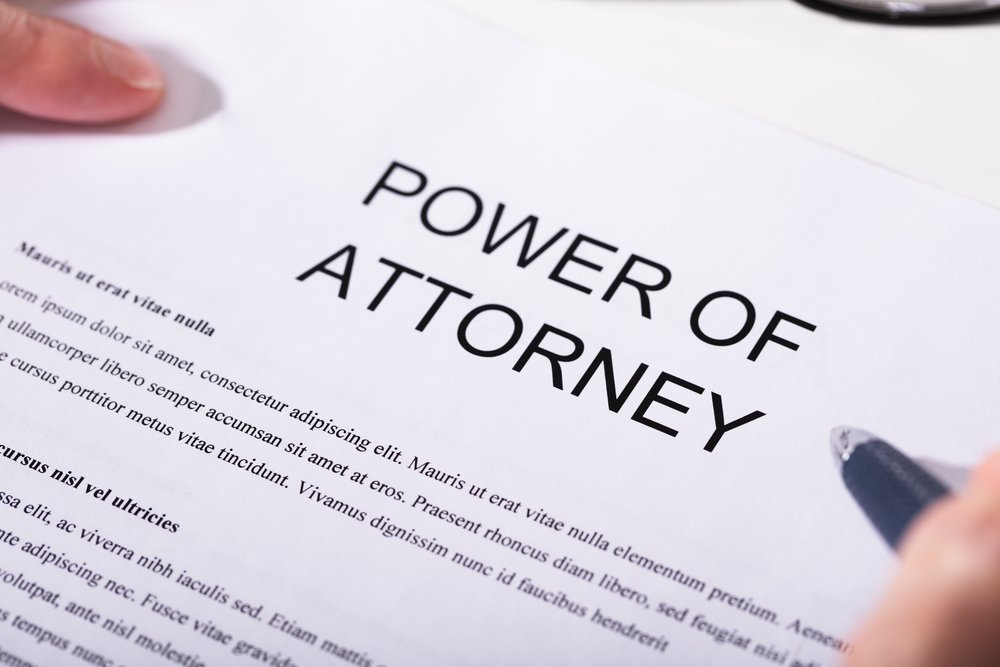19 Oct USING POWER OF ATTORNEY FOR INTERSPOUSAL TRANSFERS HAS LEGAL ISSUES
Many think by signing a general durable power of attorney that the agent could do anything that the principal (the one who signs the power of attorney) could do. However, the authority of the agent is limited to the extent as permitted by law and the document itself – even if your spouse is your agent.
The following factual situation illustrates some of the legal issues one should consider when transferring the homestead of a married couple to one spouse when using a general durable power of attorney. In this case, the wife had questionable capacity – so the original thought would be to use the general durable power of attorney to effectuate the transfer until examination of law and the authority granted in the document. The following are a few issues that should be understood:
1. Even if you are married and your home is community property, your spouse cannot sell or mortgage your property without authority.
A general durable power of attorney usually gives the agent the authority to handle all real estate transactions. The power of attorney can be general (do most things) or limited (i.e., an agent can only do certain transactions such as authority to sell to one real estate property). If you are married and the property is not in a trust and you do not have a power of attorney, then guardianship may be required to act on behalf of the mentally disabled spouse. When deeding the homestead, both parties (the married couple) must sign the deed (i.e., both are deeding to one spouse). If one lacks mental capacity, there must be authority (i.e., through the power of attorney, guardianship, etc.) to act on behalf of the mentally disabled spouse.
2. Can a spouse deed his or her interest to her spouse?
Whether a homestead is a community or separate property, some title companies take the position that the homestead cannot be transferred (unless there is a divorce) since a surviving spouse would always retain a life estate (the right to live in the home after the death of their spouse) under the Texas Constitution. Other title companies would permit as long as both parties sign the deed and agree to partition (so it is the sole and separate property of the spouse who is being deeded the property).
3. Was the original power of attorney recorded?
The actual signed document (power of attorney) must be recorded in the county where the homestead is located within 10 days of the transaction for the deed to be effective. The county will not record a photocopy of the power of attorney. If using a power of attorney to handle any real estate transaction (such as transferring or mortgaging the property), the original power of attorney must be recorded.
4. Does the power of attorney allow self-dealing?
It is not enough that the spouse is named as the agent. There must be authority of the agent to transfer property to the agent under the terms of the power of attorney. Otherwise, it would not pass underwriting of a title company. The agent could refuse the act or resign (which should also be recorded with the County Clerk) or delegate the authority to someone else to act as agent (if permitted under the power of attorney) to deed the homestead to the individual originally named as the agent.
5. Does the power of attorney grant broad gifting authority?
The majority of the powers that I see do not either allow gift-giving or limit gift-giving to the annual exclusion (which is presently $15,000 per year per person). Since a community property interest in a homestead is likely greater than $15,000, there would be the issue of exceeding the authority granted in the power of attorney without broad gift-giving authority.
6. Does the power of attorney grant the right to a marital partition?
There should be a specific authority in the power of attorney to grant the right of the agent to do a marital partition of the homestead so it would be the sole and separate property of the spouse to whom the property is being deeded.
After spotting the problems with the power of attorney, it was determined it was best that the power of attorney not be used and that the spouse with diminished capacity sign the deed provided that: (1) she had sufficient mental capacity to sign the document; and (2) there was no undue influence or duress when she signs the deed. A neurologist determined there was sufficient mental capacity at the time of her signing the deed (and he signed a capacity affidavit to confirm) and the deed was not signed in the presence of her spouse to reduce the risk of undue influence or duress. The husband and wife should have their own attorney in connection with partition of the property as this is tantamount to a post-nuptial agreement.
This fact situation illustrates there are often many legal issues in doing something as simple as a deed (not to mention so many other matters) that an attorney should consider. Doing it yourself would be at your own peril.
If interested in learning more about this article or other estate planning, Medicaid and public benefits planning, probate, etc., attend one of our free upcoming virtual Estate Planning Essentials workshops by clicking here or calling 214-720-0102. We make it simple to attend and it is without obligation.










